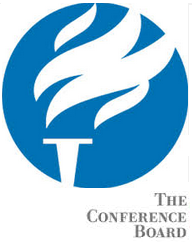
Written by Doug Short and Steven Hansen
The Conference Board Consumer Confidence Index improved to 96.2 in March from the February final reading of 94.0. The market expected (from Bloomberg) this index to come in between 91.9 to 96.0 (consensus 94.0).

Note that this data is considered preliminary, and the cutoff for these results was 17 March 2016.
Here is an excerpt from The Conference Board:
The Conference Board Consumer Confidence Index®, which had decreased in February, improved in March. The Index now stands at 96.2 (1985=100), up from 94.0 in February. The Present Situation Index declined moderately from 115.0 to 113.5, while the Expectations Index increased from 79.9 to 84.7 in March.
The monthly Consumer Confidence Survey®, based on a probability-design random sample, is conducted for The Conference Board by Nielsen, a leading global provider of information and analytics around what consumers buy and watch. The cutoff date for the preliminary results was March 17.
“Consumer confidence increased in March, after declining in February,” said Lynn Franco, Director of Economic Indicators at The Conference Board. “Consumers’ assessment of current conditions posted a moderate decline, while expectations regarding the short-term turned more favorable as last month’s turmoil in the financial markets appears to have abated. On balance, consumers do not foresee the economy gaining any significant momentum in the near-term, nor do they see it worsening.”
Consumers’ appraisal of current conditions eased in March. Those saying business conditions were “good” decreased from 26.5 percent to 24.9 percent. However, those saying business conditions are “bad” edged down from 19.0 percent to 18.8 percent. Consumers’ appraisal of the labor market was mixed. Those claiming jobs are “plentiful” increased from 22.8 percent to 25.4 percent, while those claiming jobs are “hard to get” also rose to 26.6 percent from 23.6 percent.
Consumers were more optimistic about the short-term outlook than in February. The percentage of consumers expecting business conditions to improve over the next six months increased moderately from 14.5 percent to 15.0 percent, while those expecting business conditions to worsen decreased from 11.6 percent to 9.2 percent.
Consumers’ outlook for the labor market was also more favorable. Those anticipating more jobs in the months ahead increased slightly from 12.2 percent to 12.9 percent, while those anticipating fewer jobs decreased from 17.7 percent to 16.3 percent. The proportion of consumers expecting their incomes to increase declined moderately from 17.7 percent to 17.2 percent, while the proportion expecting a reduction in income edged up from 11.6 percent to 11.8 percent.
















